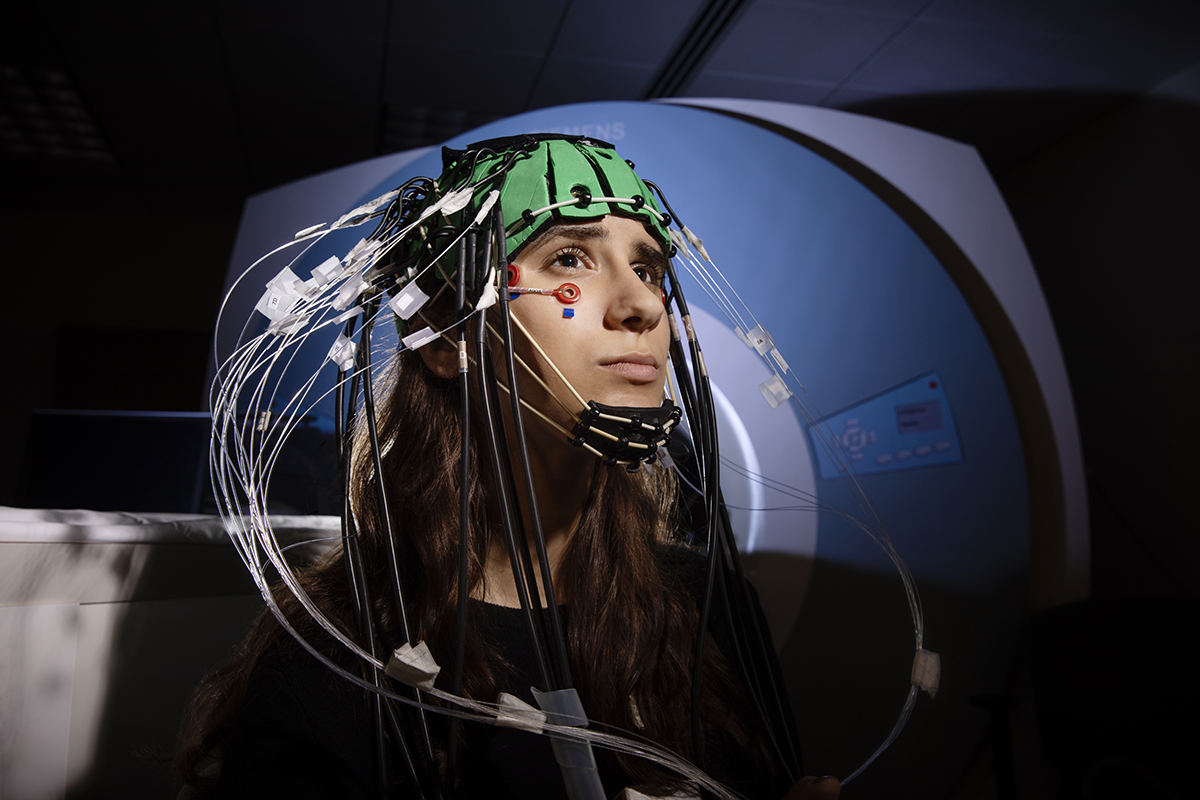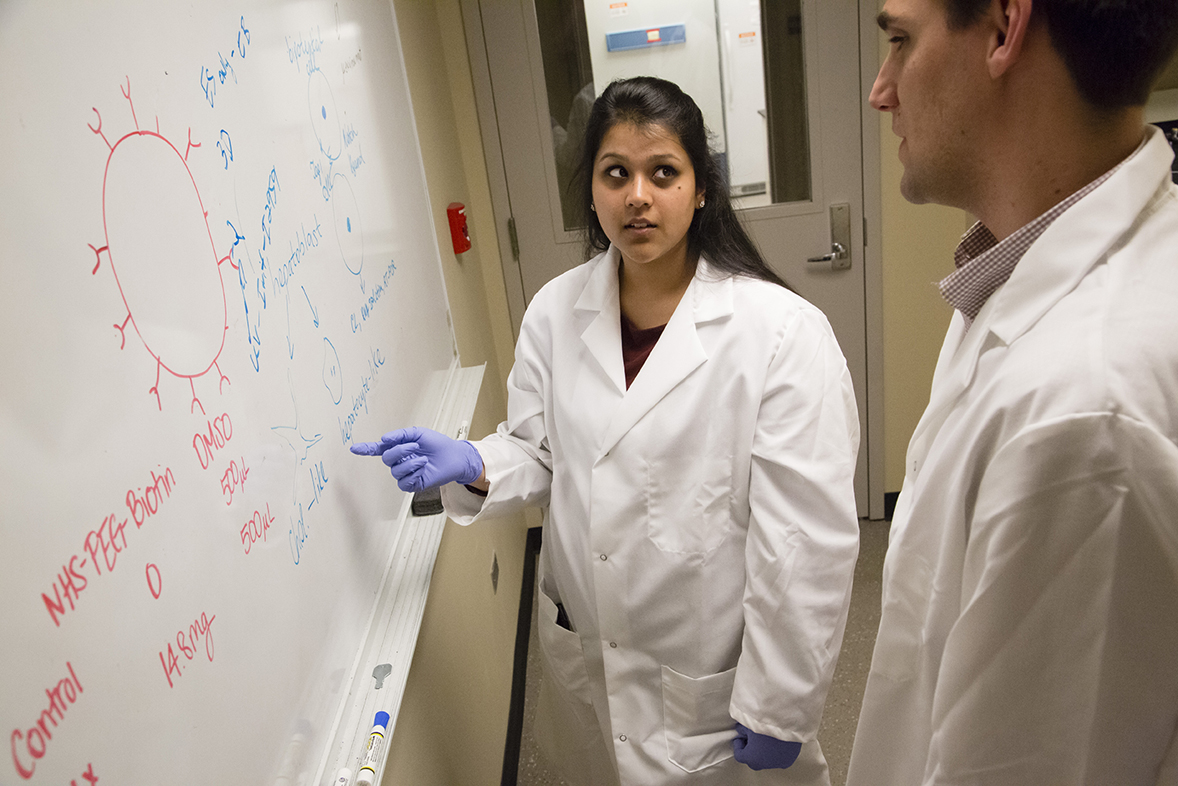Neuroscience
Neuroscience is an exciting and interdisciplinary field that explores the biological, chemical, and physical processes behind how the brain and nervous system control movement, how we learn and retrieve information, our emotions, and other complex functions. Neuroscientists seek to understand the causes of a variety of disorders, from neurodevelopmental to neurodegenerative disorders, from brain cancer to epilepsy, and to develop biomedical treatments for them. As a neuroscience major, you’ll take a variety of courses and develop important laboratory skills. You will use model organisms like fruit flies, fish, and mice, and you will explore cells at all levels, from the dish to cells functioning in animals.
- MCB 170 - Society and the Brain
- MCB 150 - Molecular and Cellular Basis of Life
Students should consult with an academic advisor regarding course selection prior to the advanced registration period.
Whatever your dream—pursuing a career in industry or advancing to graduate school or professional school—you will be well-prepared. Neuroscience majors can pursue a number of careers such as physicians, scientists with pharmaceutical or biotechnology companies or universities, and governmental agencies, therapists (physical, speech, language), pharmaceutical or neurodiagnostic technicians, and policymakers for health organizations.
- Analytical & quantitative abilities
- Biology theory & practical knowledge
- Curiosity and creativity
- Experimental
- Design
- Dissection
- Ability to work as part of a team
- Information handling & organization
- Interpretation of scientific literature
- Operation of scientific equipment
- Oral & written communication
- Problem solving
- Statistical awareness
- Collaboration
- Technical skills
- Anesthesiology Assistant
- Cell Culture Scientist
- Crime Lab Technician
- Cytotechnologist
- Dentist
- Doctor
- Forensic Scientist
- Genetic Counselor
- Governmental Research Scientist
- Laboratory Technician/Scientist
- Lawyer (Patent or Intellectual Property)
- Medical Illustrator
- Medical Technologist
- Medical Writer
- Museum Educational Staff Member
- Neurodiagnostic Technician
- Neurologist
- Neurosurgeon
- Pathologist
- Pharmaceutical Technician
- Pharmacist
- Physician's Assistant
- Physical Therapist
- Professor
- Psychologist
- Respiratory Therapist
- Scientific Sales Representative
- Science Librarian
- Speech or Language Therapist
- Teacher
- University Research Assistant
- Veterinarian
Some careers may require education beyond an undergraduate degree.
- Participating in undergraduate research in Neuroscience
- Applying for a study abroad experience
- Utilizing resources of The Career Center and Engineering Career Services
- Joining a Registered Student Organization (RSO) related to this major, like Neurotech@UIUC or Undergraduate Neuroscience Society
There are several professional organizations dedicated to Neuroscience. Their websites might be able to provide a glimpse in the world of Neuroscience. These organizations include Society for Neuroscience, American Neurological Association, American Academy of Neurology and Cognitive Neuroscience Society.


